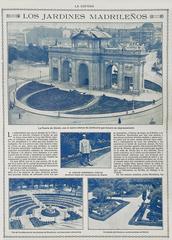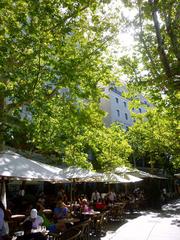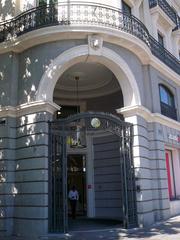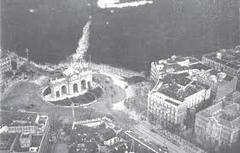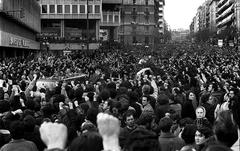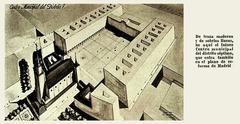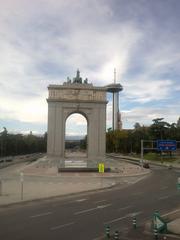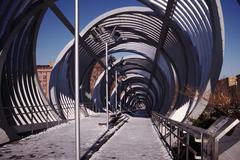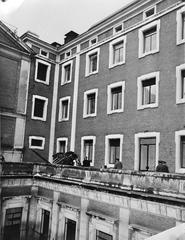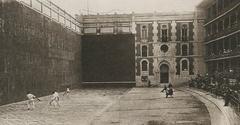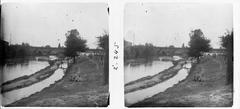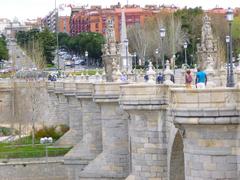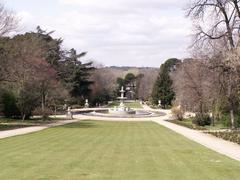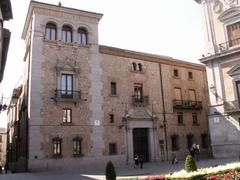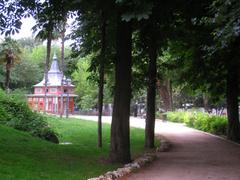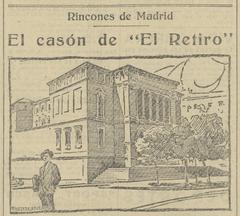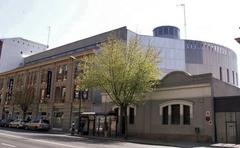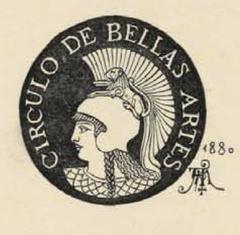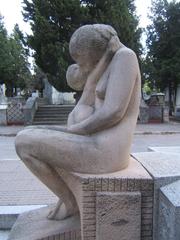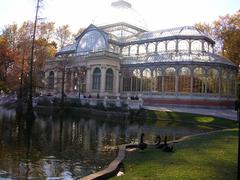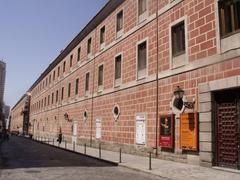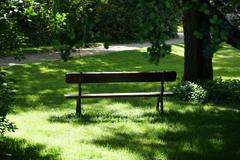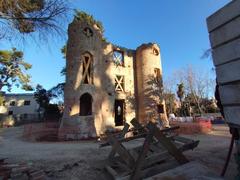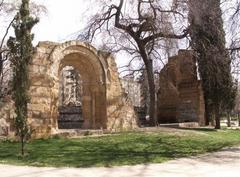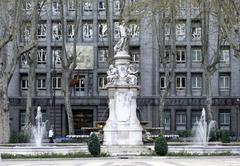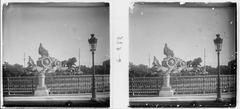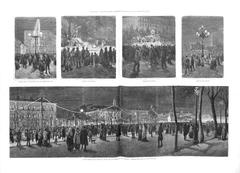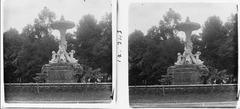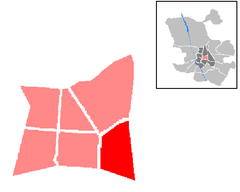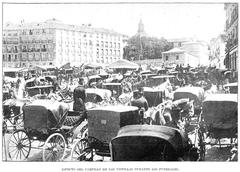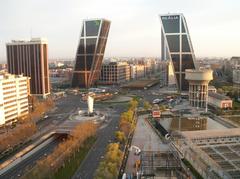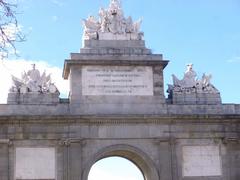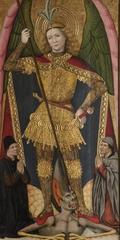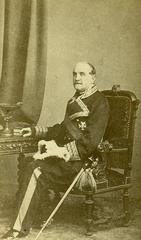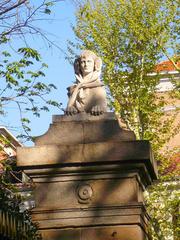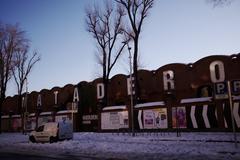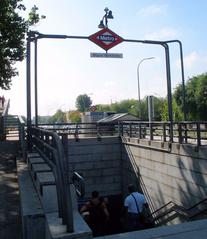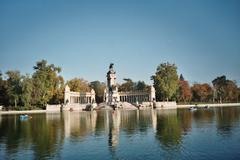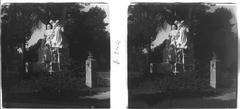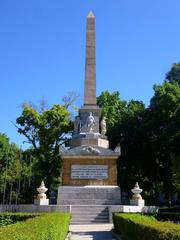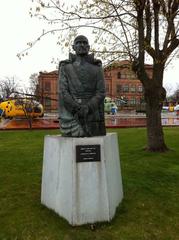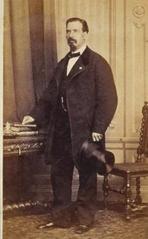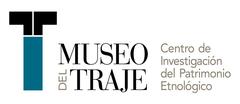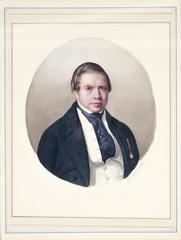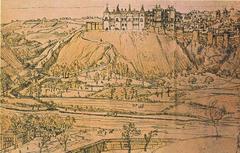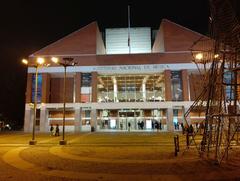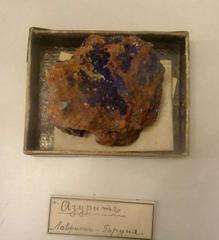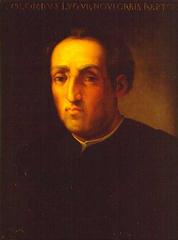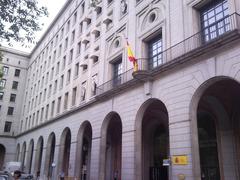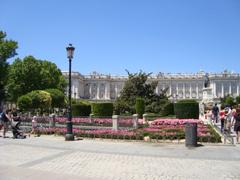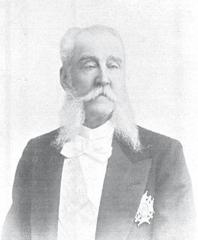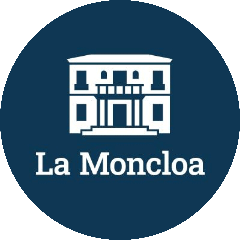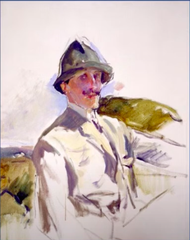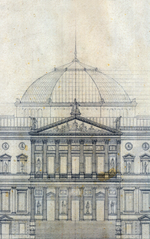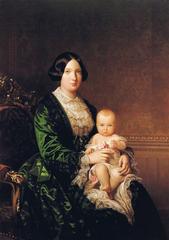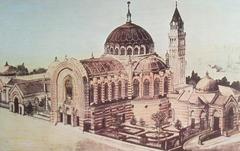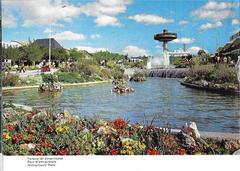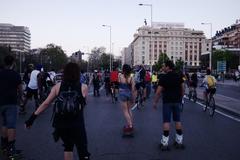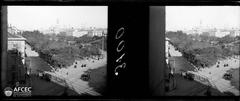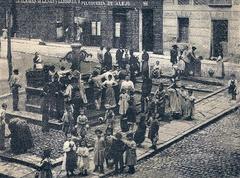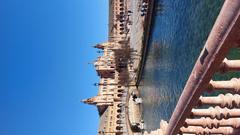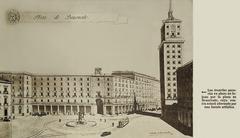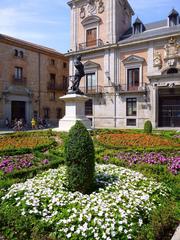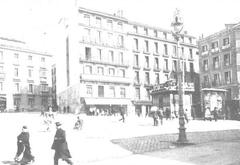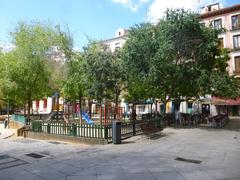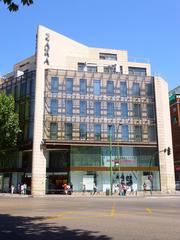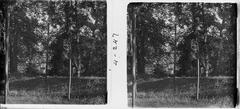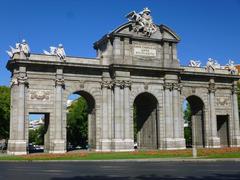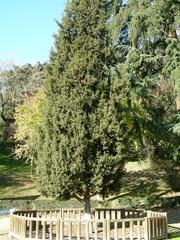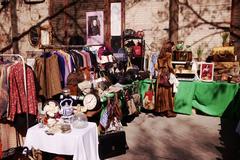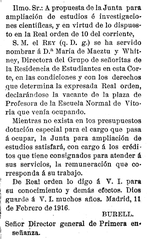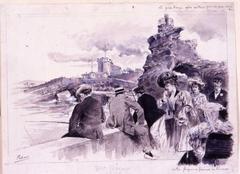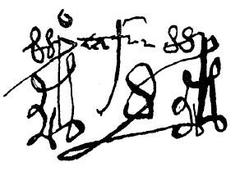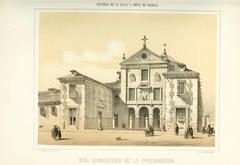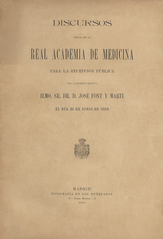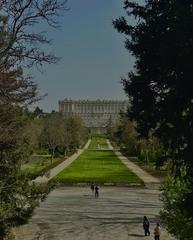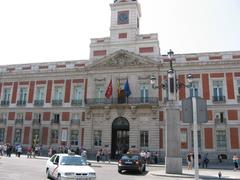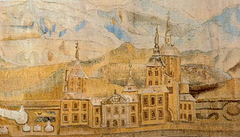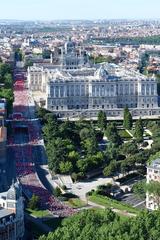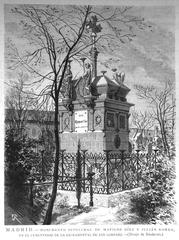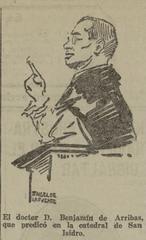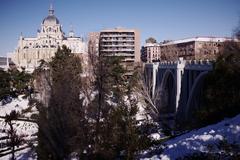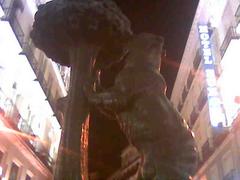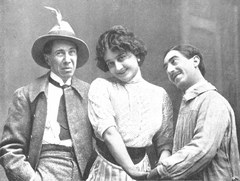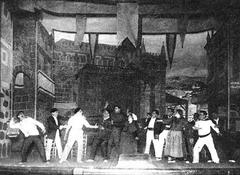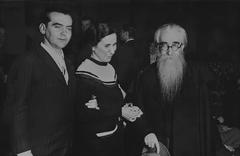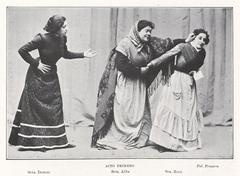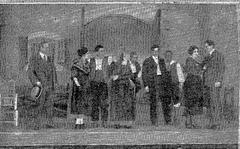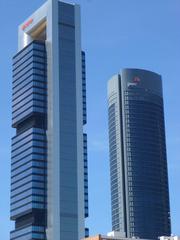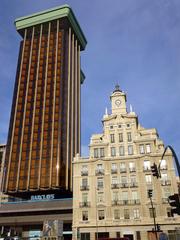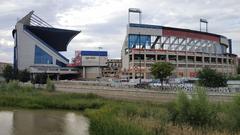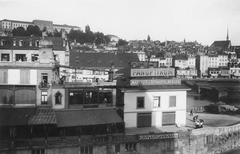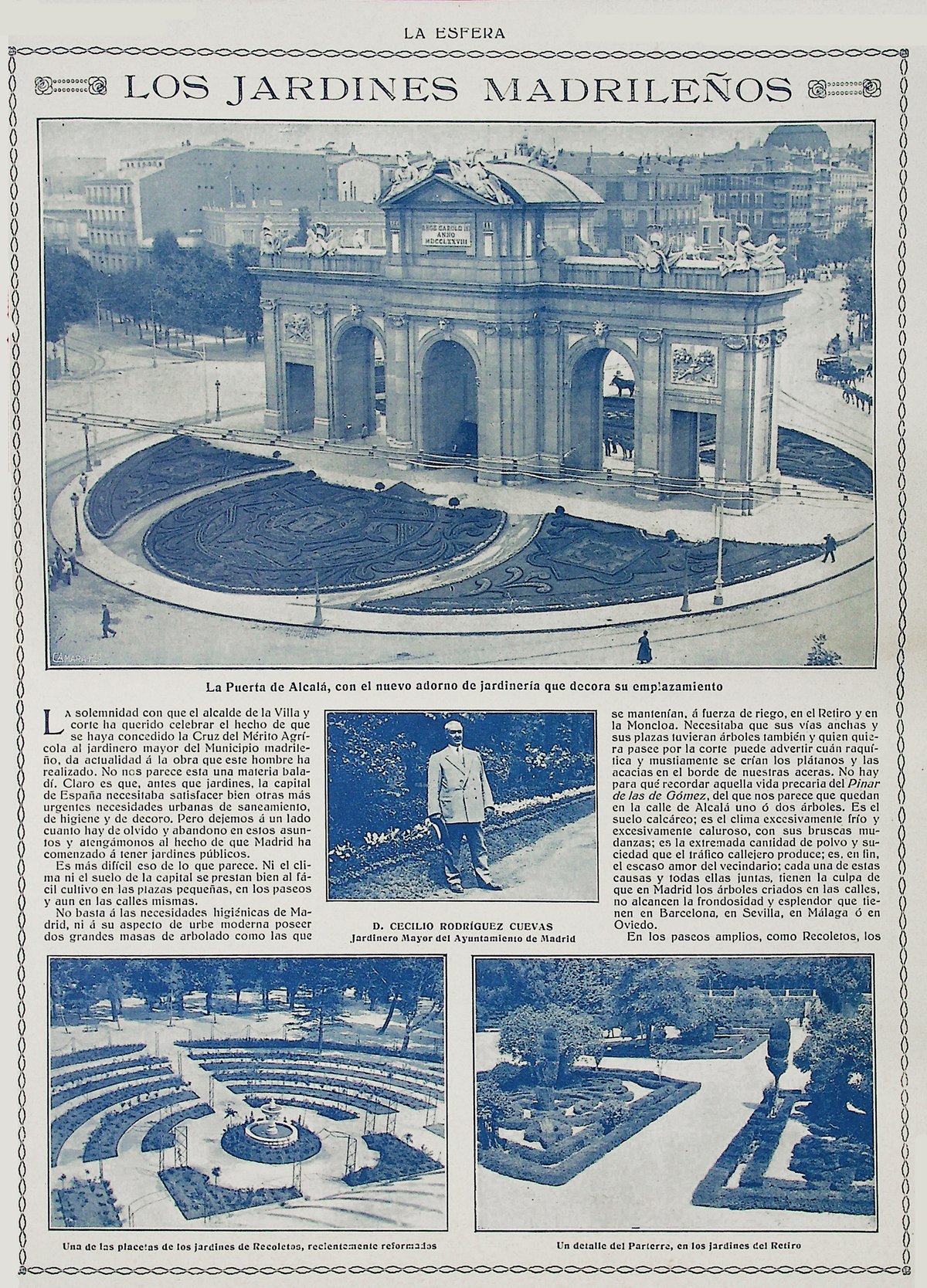
Visiting Hours, Tickets, and Tips for Plaza De La Independencia in Madrid, Spain
Date: 17/08/2024
Introduction
Plaza de la Independencia, or Independence Square, serves as a central and historically rich landmark in Madrid, Spain. Established in 1778 during the reign of King Carlos III, this square was a part of an ambitious urban development plan aimed at modernizing Madrid and enhancing its status as a European capital (Wikipedia). The square’s centerpiece, the Puerta de Alcalá, is an iconic neoclassical triumphal arch designed by Francesco Sabatini, making it a focal point for both historical reflection and contemporary urban life (History Hit). Over the centuries, Plaza de la Independencia has witnessed numerous historical events, from the entry of Napoleon’s troops during the Peninsular War to its role as a backdrop for Franco’s military parades and more recent public gatherings and celebrations (Explorial). This guide aims to provide a comprehensive overview of Plaza de la Independencia, covering its history, architectural significance, visitor information, and practical tips to help you make the most of your visit.
Table of Contents
History
Origins and Early Development
The Plaza de la Independencia was inaugurated in 1778 during the reign of King Carlos III. Designed by the Italian architect Francesco Sabatini, the square was part of a broader urban development plan aimed at modernizing Madrid and enhancing its status as a European capital (Wikipedia).
Architectural Evolution
The centerpiece of Plaza de la Independencia is the Puerta de Alcalá, a neoclassical triumphal arch designed by Sabatini. Commissioned by King Carlos III in 1774 and completed in 1778, it replaced an older, smaller gate. The Puerta de Alcalá is notable for its five arches and intricate ornamental details, sculpted by Francisco Gutiérrez and Roberto Michel (History Hit).
In the 19th century, the square underwent significant changes. The current layout dates back to 1869, following the demolition of the walls surrounding the Puerta de Alcalá during Spain’s Glorious Revolution in 1868 (Wikipedia).
Historical Significance
Plaza de la Independencia has witnessed numerous historical events. During the Spanish Civil War, the Puerta de Alcalá was adorned with large portraits of Stalin and Soviet Commissars, symbolizing the political turmoil of the era. The gate’s original inscription, which honored King Carlos III, was temporarily covered with the Soviet flag (History Hit).
The square has also been a focal point for various public gatherings, protests, and celebrations. Its significance is further underscored by its proximity to other important landmarks, such as Buen Retiro Park and the Prado Museum (El Digital de Madrid).
Visitor Information
Tickets and Opening Hours
Plaza de la Independencia and the Puerta de Alcalá are accessible to the public 24/7. There are no tickets required to visit the square, making it an easily accessible historical site.
Travel Tips
- Best Time to Visit: The square is particularly beautiful during the early morning or late afternoon when the sunlight casts a warm glow on the Puerta de Alcalá. This is also an ideal time for photography.
- Getting There: The square is easily accessible via Line 2 of the Madrid Metro, with the Retiro and Banco de España stations being the closest stops. Several bus routes also pass through the area (History Hit).
- Nearby Attractions: Don’t miss the opportunity to explore the nearby Buen Retiro Park, which offers a tranquil escape from the city’s hustle and bustle. The Prado Museum, one of the world’s premier art museums, is also within walking distance (Meet Me in Departures).
Practical Information
Safety Precautions
While Madrid is generally safe, it is essential to be cautious of pickpockets, especially on the metro and in crowded tourist areas. Keep an eye on your valuables and be extra vigilant on the narrow sloping streets down towards Lavapiés, near Tirso de Molina metro, and the tunnels by Plaza de los Cubos. There have been instances of muggings targeting victims out alone and drunk late at night (Lonely Planet).
Language and Communication
Most businesses in Madrid are pleased to deal with tourists. However, don’t be offended if they don’t respond in English to your questions; while younger staff tend to be confident speakers, the older generation was not taught the language and can be shy to engage. They may well get over their reticence if you have a bash at some basic Spanish (Lonely Planet).
Weather Considerations
Madrid’s weather can be changeable, particularly in autumn and spring. It is advisable to pack layers to accommodate the varying temperatures throughout the day. In terms of style, Spaniards are easygoing about fashion, though they will have a good laugh at your expense if they spot you wearing short sleeves in winter (Lonely Planet).
FAQ
- Q: What are the visiting hours for Plaza de la Independencia?
- A: Plaza de la Independencia is accessible 24/7.
- Q: How much are the tickets for Plaza de la Independencia?
- A: There are no tickets required to visit Plaza de la Independencia.
- Q: What are the best times to visit Plaza de la Independencia?
- A: The best times to visit are early morning or late afternoon for optimal lighting and fewer crowds.
Conclusion
Plaza de la Independencia is more than just a square; it is a symbol of Madrid’s rich history and cultural heritage. From its origins in the 18th century to its role in modern-day Madrid, the square continues to be a focal point for both historical reflection and contemporary urban life. Whether you’re a history enthusiast, an architecture aficionado, or simply a curious traveler, Plaza de la Independencia offers a unique glimpse into the heart of Madrid.
For more travel tips and updates, consider downloading the Audiala mobile app or following us on social media.
References
- Wikipedia, 2024, Plaza de la Independencia (source)
- History Hit, 2024, The Alcala Gate (source)
- El Digital de Madrid, 2024, Plaza Independencia Madrid (source)
- Explorial, 2024, Madrid Puerta de Alcala (source)
- Holidify, 2024, Independence Square Madrid (source)
- Travellers Worldwide, 2024, Best Time to Visit Madrid (source)
- The Broke Backpacker, 2024, Madrid Itinerary (source)
- Nomadic Matt, 2024, Best Things to See in Madrid (source)
- Vicki Viaja, 2024, 3 Days in Madrid (source)
- Lonely Planet, 2024, Things to Know Before Traveling to Madrid (source)
- Spain.info, 2024, Puerta Alcala Madrid (source)
- Madrid Tourist, 2024, Alcala Gate (source)
